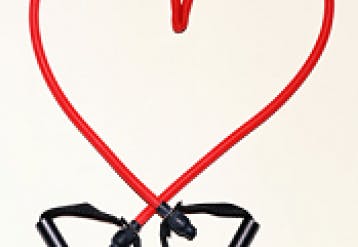Health Blog
Get tips and advice on popular health topics.

Elizabeth Ward, MS, RD

You’d like to lose the holiday pounds or take healthier eating to another level in the new year, but you’re unsure about the best way to eat. Should you follow a high-protein, low-fat, or low-carb diet? What matters most is a safe, balanced eating plan you can stick with that provides the nutrients you need while supporting your energy and metabolism.
Here’s what you should know.

Don’t diet, adhere.
It’s tempting to turn to fads, such as low-calorie diets (less than 1,600 calories a day), fasting, and juice “cleanses” to slim down and reduce the sluggishness that comes from overdoing it on food. Anyone can lose weight by slashing calories, but unhealthy eating approaches are not sustainable in the long run.
Ditch the dieting mentality and make lifestyle changes, such as eating five servings of fruits and vegetables and at least three portions of whole grains every day. It’s safer to pare down at a slower pace with a balanced eating plan. It’s also more likely you’ll keep unwanted pounds at bay when you pace yourself rather than rush the process.

Harness the power of protein.
High-protein eating plans go in and out of fashion, but the importance of protein in a balanced diet never goes out of style. Protein is a major player when it comes to overall health and weight control because it helps you feel fuller for longer.
MyPlate, the government’s healthy meal planning symbol, recommends filling about one-quarter of your plate at every meal with high protein foods, including lean meat, poultry, seafood, legumes, and soy foods. That’s in addition to suggesting a glass of low-fat milk or fortified soy beverage, also protein-rich.

Go for the “good” carbs.
Carbohydrates are the body’s preferred energy source. Foods rich in refined carbohydrates, such as white bread, crackers, and sugary treats supply energy as calories, but often little else in the way of nutrition. You should limit or avoid refined carbohydrates whether or not weight control is your goal. Complex carbs take longer to digest and supply a more lasting energy source. Fiber, a complex carbohydrate that goes largely undigested, helps keep you full. Foods such as whole grains, legumes, and vegetables supply complex carbohydrates including fiber as well as an array of other nutrients to stoke your metabolism.

Mind the multivitamins.
Proteins, fats, and carbohydrates provide calories, but the energy from food needs the help of the vitamins and minerals to convert food calories into the energy your body can actually use. A daily multivitamin provides a variety of vitamins and minerals and are useful for making up for what you miss in food, especially for certain groups of people, such as women of childbearing age and people over the age of 50.

Eat on a regular basis.
Your body needs a steady source of food for the energy, vitamins, minerals, and other nutrients it provides. Spread your calories evenly throughout the day. When you’re on the go, and you can’t eat a full meal, pack healthy snacks to take with you.
You might also like

Exercising Good Heart Health
Take heart: lack of physical activity is one risk factor that can be easily remedied, simply by introducing regular exercise into your daily routine.

STUDY: Are the Nutrients in Multivitamin Supplements Absorbed?
The study, "Effects of Multivitamin/Mineral (MVM) Supplementation on Plasma Levels of Nutrients," (nutrient absorption study).

Know Your Power Hours
Let's face it: Some days at work it seems all you do is watch the clock..


